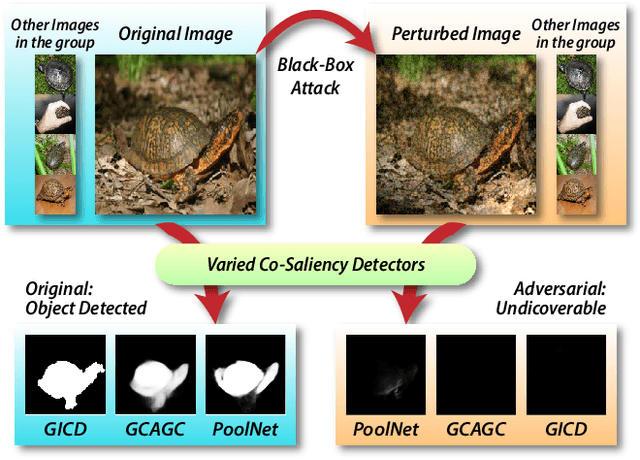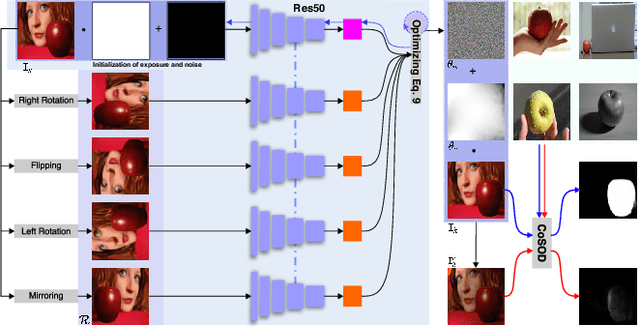Making Images Undiscoverable from Co-Saliency Detection
Paper and Code
Sep 19, 2020



In recent years, co-saliency object detection (CoSOD) has achieved significant progress and played a key role in the retrieval-related tasks, e.g., image retrieval and video foreground detection. Nevertheless, it also inevitably posts a totally new safety and security problem, i.e., how to prevent high-profile and personal-sensitive contents from being extracted by the powerful CoSOD methods. In this paper, we address this problem from the perspective of adversarial attack and identify a novel task, i.e., adversarial co-saliency attack: given an image selected from an image group containing some common and salient objects, how to generate an adversarial version that can mislead CoSOD methods to predict incorrect co-salient regions. Note that, compared with general adversarial attacks for classification, this new task introduces two extra challenges for existing whitebox adversarial noise attacks: (1) low success rate due to the diverse appearance of images in the image group; (2) low transferability across CoSOD methods due to the considerable difference between CoSOD pipelines. To address these challenges, we propose the very first blackbox joint adversarial exposure & noise attack (Jadena) where we jointly and locally tune the exposure and additive perturbations of the image according to a newly designed high-feature-level contrast-sensitive loss function. Our method, without any information of the state-of-the-art CoSOD methods, leads to significant performance degradation on various co-saliency detection datasets and make the co-salient objects undetectable, which can be strongly practical in nowadays where large-scale personal photos are shared on the internet and should be properly and securely preserved.
 Add to Chrome
Add to Chrome Add to Firefox
Add to Firefox Add to Edge
Add to Edge